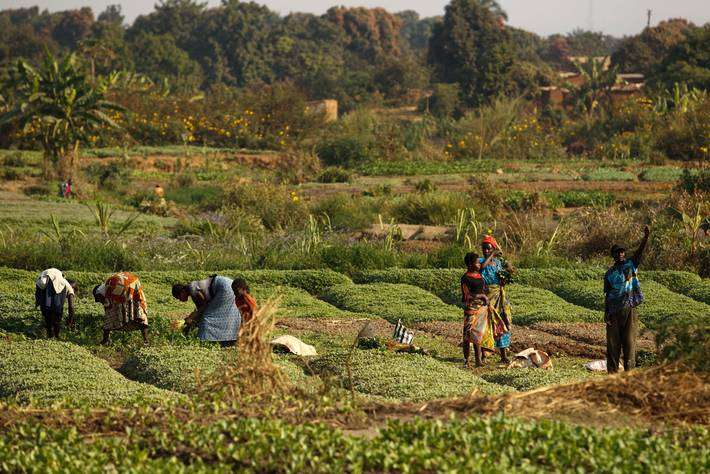Stakeholders in the agriculture sector are advocating for using local waste materials to produce organic fertilizer for farmers in the wake of the skyrocketing prices of imported fertilizers.
The stakeholders revealed the abundant materials, including high volumes of waste food and crop residues that produced unwanted gasses, which could be turned into organic fertilizer to support organic farming.
The stakeholders also emphasized the need to use local and modern approaches to enhance the agro-processing sector to reduce post-harvest losses and ensure food safety.
The views were expressed at a national policy dialogue on agroecology and sustainable access to agro-inputs in the context of climate change held in Accra.
The dialogue brought together civil society organizations in agriculture and representatives of government agencies, including the Ministry of Food and Agriculture (MoFA) and the Environmental Protection Agency.

Traditional knowledge of farming practices is sustainable
Mr. Bismark Owusu Nortey, the Programme Officer of the Peasant Farmers Association of Ghana, speaking at the event, said the current global development had intensified the need for mobilization and use of domestic resources for the country’s benefit.
He said there is a traditional knowledge of sustainable farming practices, which qualified to be climate-smart agriculture practices aligned with agroecological concepts.
Mr. Nortey explained agroecology as a sustainable farming practice that worked with nature and created synergies, balancing environmental, social, and economic considerations.
He said agroecology practices use natural processes, avoid chemicals such as pesticides and fertilizers, and reduce the environmental harm of food production while stabilizing yields.
Mr. Kingsley Kwasi Agyemang, an official at the Directorate of Crop Service of the MoFA, said the FAO’s report has concluded that agroecology increases climate resilience by building on ecological principles such as biodiversity and healthy soils.
He said ECOWAS supports developing and implementing innovative agroecological practice projects for improved food and nutrition security in West Africa through its “Agroecology Programme.”
Mr. Agyemang said the “Agroecology Programme” project seeks to strengthen the resilience of West African populations in terms of food and nutritional security through disseminating best practices.
Ghana abounds with raw materials for fertilizer production
The stakeholder’s views resonate with what the Agric Minister, Dr. Afriyie Akoto, disclosed in an earlier interview that Ghana abounds with loads of raw materials for fertilizer production, which includes garbage and fauna.
The Minister applauded Zoomlion Ghana Limited’s effort for investing hugely in using waste to produce organic fertilizer.
“The demand for fertilizer in Ghana, is about 600,000 metric tonnes. And so far this year, we haven’t even done 100,000 metric tonnes, so we are way off. We are actively searching for solutions to ensure that farmers are supplied with the right fertilizer.”
Dr. Afriyie Akoto
He urged local organic fertilizer producers to avail themselves of the opportunities presented by the government to boost production and meet the fertilizer needs of the farming population.
“We are prepared to work with you with our extension officers. Who can teach the farmers how to adapt and apply this organic fertilizer. And given the opportunity out there, I believe you can supply more. We will collaborate closely with local producers of organic fertilizers to see how we can maximize your businesses to help us bridge the fertilizer gap – if not completely, at least we’ll make an effort to provide a higher percentage of fertilizer requirement.”
Dr. Akoto Afriyie
READ ALSO: GIRSAL Will Be the Game Changer In Agricultural Lending Space- ADB MD



















